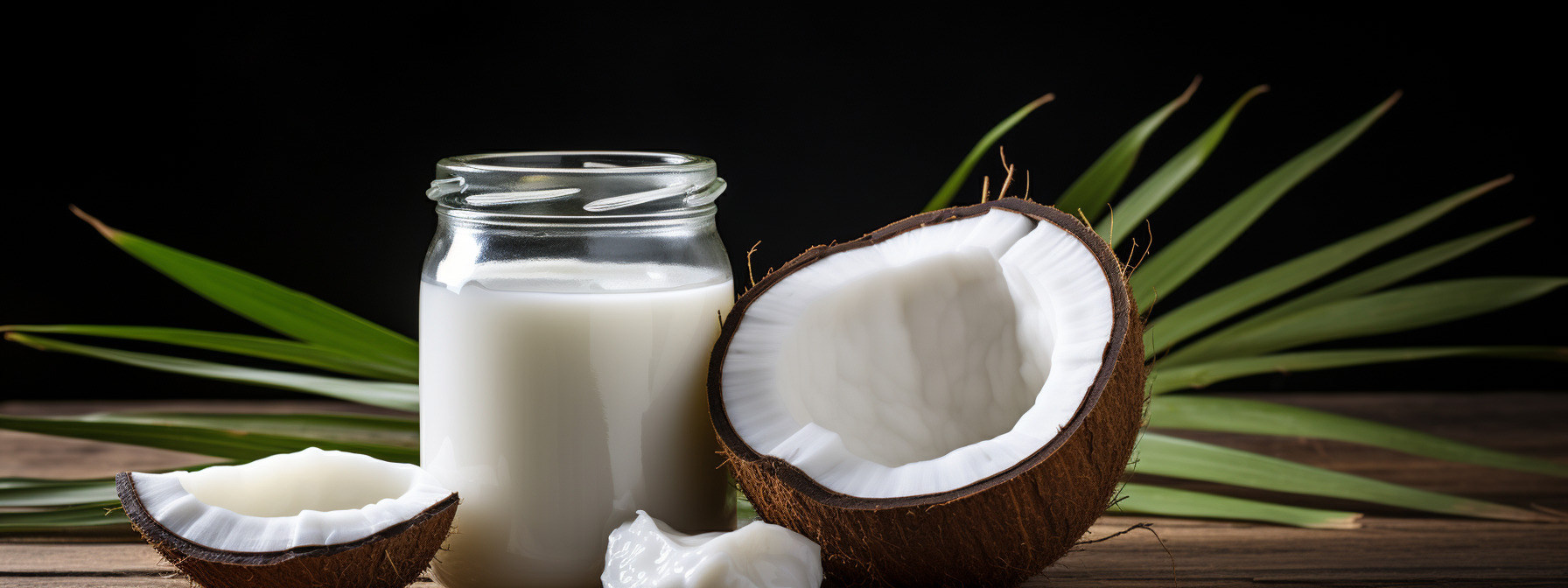Introduction
Virgin Coconut Oil (VCO) has been an integral part of households for years, thanks to its myriad of uses. From culinary delights to skincare routines, VCO has always found a place. However, its potential benefits extend far beyond the kitchen and the bathroom. Cutting-edge research is uncovering exciting possibilities for VCO in the realm of medical science, particularly in cell protection and cancer therapy. With the rising prevalence of cancer and the continuous quest for effective treatments, the therapeutic roles of VCO and its primary component, Lauric Acid, are more relevant than ever.
The Intricacies of the Research
Recent scientific inquiry has ventured into understanding the diverse types of coconut oil: Virgin Coconut Oil (VCO), Crude Coconut Oil (ECO), and Refined Coconut Oil (RCO). Researchers are particularly keen on exploring how these different variants interact with human cells, focusing on antioxidant levels, redox balance (the balance of reactive molecules), and inflammation. Especially noteworthy is their impact on human neuroblastoma cells, a form of cancer cells often found in solid tumors in and around the adrenal glands.
Key Discoveries in Detail:
- Cell Health and Vitality: VCO and ECO have displayed remarkable abilities to maintain and even enhance cellular health. They have a beneficial impact on the redox balance of the cell, crucial for various cellular functions like energy production and immune response.
- A Beacon of Hope in Cancer Treatment: One of the most compelling findings is VCO’s potential role in causing cancer cell death. This could revolutionize how we approach cancer treatment, making VCO a potential candidate for natural therapeutic interventions.
- The Powerhouse Component – Lauric Acid: Lauric Acid, a major fatty acid found in VCO, seems to be the key player in these beneficial effects. It not only contributes to cell protection but also has a role in the death of cancer cells, amplifying VCO’s therapeutic potential.
Why This Could Revolutionize Cancer Research and Treatment
These groundbreaking discoveries could have monumental implications for medical science and particularly for cancer research and treatment:
- A Natural Alternative: The research suggests that VCO could serve as a natural therapeutic agent, providing a more organic approach to treating neuroblastoma and perhaps other types of cancer.
- Antioxidant and Cellular Protection: VCO’s demonstrated influence on antioxidant levels opens up new avenues for protecting cells from oxidative stress, a condition that often precedes cancer and other chronic diseases.
- Anti-Inflammatory Wonders: VCO’s anti-inflammatory properties could make it invaluable in treating diseases where inflammation is a key culprit, including autoimmune disorders and certain types of cancer.
Conclusion: More Than Just a Pantry Staple
Virgin Coconut Oil is clearly not just for cooking or skincare; it’s a potential medical marvel. While more exhaustive research is essential to confirm these findings, the initial results are highly promising. They open up new horizons in our understanding of how natural substances like VCO can contribute to healthcare, particularly in combating the global menace that is cancer.
As we move towards more holistic approaches to health and wellness, Virgin Coconut Oil is emerging as a powerhouse of therapeutic benefits. The next time you reach for that bottle of VCO, consider its newly discovered potential—far beyond frying and moisturizing, it may well have life-saving properties too.
https://www.ncbi.nlm.nih.gov/pmc/articles/PMC8963114/
